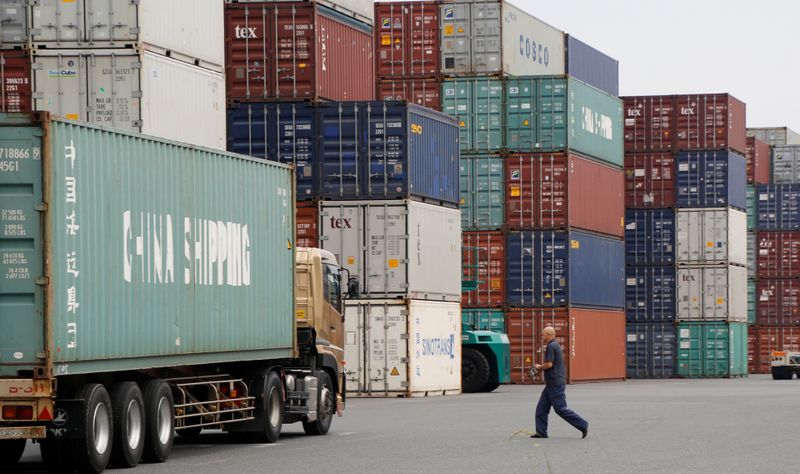By Tetsushi Kajimoto
TOKYO (Reuters) -Japan's exports jumped in June led by U.S. demand for cars and China-bound shipments of chip-making equipment, supporting hopes for an export-led recovery in the world's third-largest economy.
Exports rose 48.6% in June from a year earlier, the fourth straight month of double-digit gains, although growth was largely exaggerated by a COVID-led plunge last year. Export growth has remained strong even as a global chip shortage weighs on Japan's car output and shipments.
With consumer spending weakening due to renewed coronavirus curbs in Tokyo, policymakers are counting on external demand to pick up the slack.
In an encouraging sign for a trade-dependent economy, exports grew 23.2% in the first half of this year, up for the first time in five periods and exceeding pre-pandemic levels seen in the first half of 2019. It was the fastest growth since the first half of 2010.
The 48.6% year-on-year export growth beat a 46.2% increase expected by economists in a Reuters poll and followed a 49.6% expansion in May, which was the sharpest monthly increase since April 1980.
"China's economy may be pausing but stimulus measures are being taken. With the help of recovery in Europe and America, it is expected to pick up again," said Takeshi Minami, chief economist at Norinchukin Research Institute. "That will help Japanese exports remain in an uptrend, backed by car exports as well as capital goods and information-related items."
By destination, exports to China, Japan's biggest trading partner, rose 27.7% in the year to June, led by demand for chip-making equipment, raw materials and plastic.
U.S.-bound exports grew 85.5% in June, driven by shipments of cars, auto parts and motors.
Imports rose 32.7% in the year to June, more than the median estimate for a 29.0% increase.
The trade balance came to a surplus of 383.2 billion yen ($3.49 billion), versus the median estimate for a 460.0 billion yen surplus.

Japan's economy shrank an annualised 3.9% in January-March and likely barely grew in the second quarter, as the pandemic took a toll on service spending.
($1 = 109.8700 yen)